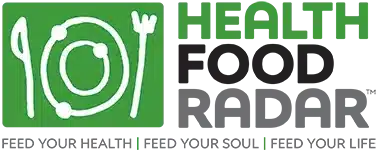written by:
reviewed by:
The American diet is about convenience, which often leads to processed rather than fresh food. So what is this doing to our bodies?

Table of contents
Our diet as Americans is not good for our hearts, in fact, it is breaking them. We eat way too many processed convenience foods. Why are these foods so bad for us? Besides the chemicals and preservatives used to make them shelf stable for years, most of them also contain way too much sugar, and salt.
The typical American Diet is also low in fruits, vegetables, whole grains, and healthy fats, which are the very foods that counteract the problems caused by excess salt, sugar, and saturated fats in the diet. We are a convenience culture that eats on the go, which often leads to processed rather than fresh food. In addition, the average American doesn’t vary the foods they eat, instead repeating the same foods and meals day after day. This repetition can significantly limit vitamins and nutrients, even when the foods are relatively healthy.
So what is this doing to our bodies? Its causing insulin resistance and elevated blood pressure not to mention increased weight gain. These problems can lead to diabetes and heart disease. Many of us don’t know that diabetes not only causes issues with the pancreas but it increases our risk for heart disease. People with type 2 diabetes are two to four times more likely to suffer from heart disease.
Sugar is One Culprit
The typical American diet is high in sugar. Americans often add sugar to everything; coffee, tea, bread, packaged fruits, juices, sodas, frozen meals, and many pre-packaged “healthy” foods. All this sugar causes insulin resistance. Insulin is a hormone made by the pancreas that helps sugar, known as glucose, leave the blood and enter cells to be used as fuel and or bodily functions.
With insulin resistance, glucose can’t enter the cells as easily. As a result, blood sugar levels rise even though the body is creating more and more insulin in an attempt to move the sugar out of the blood and into the cells. This causes high blood sugar.
Salt is Another Culprit
The typical American diet is also high in salt, known as sodium. Salt is added to most processed foods to improve the taste since they aren’t fresh. Manufacturers add salt to canned vegetables and beans, frozen foods, and even desserts. Our bodies need about 500 mg of sodium a day to function, yet the typical American eats about 3400 mg each day.
At that level, the kidneys have trouble filtering the excess sodium from the blood, causing the body to hold onto water to dilute the sodium. This water retention increases the volume of blood in the bloodstream, which means more work for the heart and more pressure on the blood vessels. Over time, the extra work and pressure cause high blood pressure.
If Sugar and Salt are Causing Problems What Should We Eat Instead?
Plenty of Fiber
Eating natural unprocessed foods high in fiber will help counteract excess sugar floating around in your body. Fiber also acts as a sponge to help absorb excess lipids as well. Excess lipids can lead to increased cholesterol, another cause of heart disease. Foods that are naturally high in fiber include; dark leafy greens, unpeeled fruits, veggies, and whole grains including oats and beans. Eating these foods are a few ways to get extra fiber in your diet. Plus they are all fresh unprocessed foods.
Eat Food that Promotes Heart Health and Lower Blood Pressure
Beets are rich in nitric oxide which studies show helps to promote lower blood pressure. Fatty fish is rich in Omega-3 and promotes a healthy cardiovascular system including healthy blood pressure and cholesterol levels as well as healthy arteries and heartbeat. Garlic is another food that is beneficial to the cardiovascular system.
Opt for Foods Lower in Sugar
Foods that are naturally high in protein tend to be lower in sugar unless they are processed. Reducing the amount of sugar in your diet can help reduce the risk of insulin resistance. Healthy meats, fish, and eggs typically don’t contain sugar and are packed with protein to help fill you up. Beans, nuts, and seeds are high in protein foods that are low in sugar. Fresh veggies only contain naturally occurring sugar plus most of them contain fiber to help counteract the sugar.
© Photos/iStockPhoto
The information provided on Health Food Radar is intended for general informational purposes only. While we strive to offer accurate and up-to-date content, we do not provide medical advice, diagnosis, or treatment. Always consult with a qualified healthcare professional before making any dietary or lifestyle changes, especially if you have underlying health conditions or concerns.



